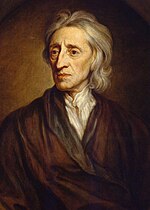Portal:Philosophy/Selected philosopher
Selected philosopher by week
Week 1 view - talk - edit - history

Aristotle was a polymath. He not only studied almost every subject possible at the time, but made significant contributions to most of them. In science, Aristotle studied anatomy, astronomy, economics, embryology, geography, geology, meteorology, physics, and zoology. In philosophy, Aristotle wrote on aesthetics, ethics, government, metaphysics, politics, psychology, rhetoric and theology. He also dealt with education, foreign customs, literature and poetry. His combined works practically constitute an encyclopedia of Greek knowledge...
Week 2 view - talk - edit - history

Socrates is often a character in Plato's dialogues. How much of any given dialogue is Socrates' point of view, and how much of it is Plato's, is heavily disputed, since Socrates himself did not write anything; this is often referred to as the "Socratic problem". However, Plato was doubtless strongly influenced by Socrates' teachings, so many of the ideas presented, at least in his early works, were probably borrowings or adaptations...
Week 3 view - talk - edit - history

Socrates was an
Opinions about Socrates were widely polarized, drawing very high praise or very severe ridicule. He had many devoted followers (such as Plato), and many angry detractors. As an old man, he fell into grave disrepute with the Athenian state powers, and was commanded to stop his public disputes, and his associations with young aristocrats. He carried on as usual. Finally, he was arrested and accused of corrupting the youth, inventing new deities (heresy), and disbelieving in the divine (atheism). According to traditional accounts, he was sentenced to die by drinking poison. Presented with an opportunity to leave Athens, he...
Week 4 view - talk - edit - history

François-Marie Arouet (21 November 1694 – 30 May 1778), better known by the
Voltaire was known for his sharp
Week 5 view - talk - edit - history
Week 6 view - talk - edit - history
Week 7 view - talk - edit - history
Dewey was born in Burlington, Vermont of modest family origins. He graduated from the University of Vermont in 1879. He received his PhD from the Krieger School of Arts & Sciences at Johns Hopkins University in 1884. From 1904, he was professor of philosophy at both Columbia University and Teachers College, Columbia University.
Along with the historian Charles A. Beard, economists Thorstein Veblen and James Harvey Robinson, Dewey is one of the founders of The New School for Social Research. Dewey's most significant writings were "The Reflex Arc Concept in Psychology" (1896), a critique of a standard psychological concept and the basis of all his further work; Human Nature and Conduct (1922), a study of the role of habit in human behavior; The Public and its Problems (1927), a defense of democracy written in response to Walter Lippmann's The Phantom Public (1925); Experience and Nature (1929), Dewey's most "metaphysical" statement; Art as Experience (1934), Dewey's major work on aesthetics; A Common Faith (1934), a humanistic study of religion; Logic: The Theory of Inquiry (1938), an examination of Dewey's unusual conception of logic; and Freedom and Culture (1939), a political work examining the roots of fascism. While each of these works focuses upon one particular philosophical theme, Dewey wove in all of his major themes into everything he wrote.
In 1937, Dewey chaired
Week 8 view - talk - edit - history

Blaise Pascal (pronounced [blez pɑskɑl]), (June 19, 1623 – August 19, 1662) was a
He was a mathematician of the first order. Pascal helped create two major new areas of research. He wrote a significant treatise on the subject of
Following a mystical experience in late 1654, he abandoned his scientific work and devoted himself to philosophy and theology. His two most famous works date from this period: the Lettres provinciales and the Pensées. However, he had suffered from ill-health throughout his life and his new interests were ended by his early death two months after his 39th birthday.
Week 9 view - talk - edit - history
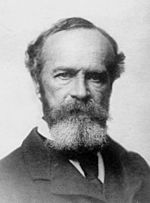
William James (January 11, 1842 – August 26, 1910) was a pioneering American psychologist and philosopher. He wrote influential books on the young science of psychology, educational psychology, psychology of religious experience and mysticism, and the philosophy of pragmatism. He was the brother of novelist Henry James.
William James was born in
James interacted with a wide array of writers and scholars throughout his life, including his godfather
Week 10 view - talk - edit - history
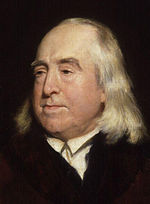
Bentham was one of the most influential (classical) liberals, partially through his writings but particularly through his students all around the world, including James Mill, who was his secretary, his son John Stuart Mill, and several political leaders (and Robert Owen, who later became the founder of socialism). He is believed to be the innovator of classical liberalism, a term first coined in the 19th century.
He argued in favor of individual and economic freedom, including the separation of church and state, freedom of expression, equal rights for women, animal rights, the end of slavery, the abolition of physical punishment (including that of children), the right to divorce, free trade, and no restrictions on interest. But, he was not a libertarian, and supported inheritance tax, restrictions on monopoly power, pensions, and health insurance.
Bentham was born in Spitalfields, London, into a wealthy Tory family. He was a child prodigy and was found as a toddler sitting at his father's desk reading a multi-volume history of England. He began his study of Latin at the age of three.
He went to
Week 11 view - talk - edit - history

Nārāyana Guru (नारायण गुरु,നാരായണ ഗുരു) (
Nārāyana
In contrast to certain other reformers who criticized
Week 12 view - talk - edit - history
Friedrich Ludwig Gottlob Frege was a German mathematician who evolved into a logician and philosopher. He helped found both modern mathematical logic and analytic philosophy.
Frege's father was a schoolteacher whose specialty was mathematics. Frege began his studies at the
Week 13 view - talk - edit - history
Week 14 view - talk - edit - history
Although numerous collections from Wittgenstein's notebooks, papers, and lectures have been published since his death, he published only one philosophical book in his lifetime — the Tractatus Logico-Philosophicus in 1921. Wittgenstein's early work was deeply influenced by Arthur Schopenhauer, and by the new systems of logic put forward by Bertrand Russell and Gottlob Frege. When the Tractatus was published, it was taken up as a major influence by the Vienna Circle positivists. However, Wittgenstein did not consider himself part of that school and alleged that logical positivism involved grave misunderstandings of the Tractatus...
Week 15 view - talk - edit - history
life; at the same time, his stances on many topics were extremely controversial.
Born at the height of Britain's economic and political ascendancy, he died of influenza nearly a century later when the British Empire had all but vanished; its power dissipated in two victorious, but debilitating world wars. As one of the world's best-known intellectuals, Russell's voice carried enormous moral authority, even into his early 90s. Among his other political activities, Russell was a vigorous proponent of nuclear disarmament and an outspoken critic of the American war in Vietnam.
In 1950, Russell was made a
Week 16 view - talk - edit - history
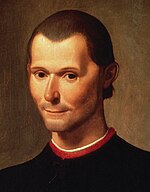
Niccolò Machiavelli (May 3, 1469 – June 21, 1527) was a
Machiavelli was born in Florence, the second son of Bernardo di Niccolò Machiavelli and his wife Bartolommea di Stefano Nelli. His father was a lawyer of some repute and belonged to an impoverished branch of an influential old Florentine family.
Week 17 view - talk - edit - history
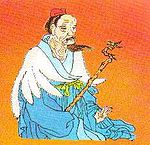
Zhuangzi (莊子, 庄子, Zhuāng Zǐ, Chuang Tzŭ, Chuang Tsu, Zhuang Tze, or Chuang Tse) was a
Week 18 view - talk - edit - history
Willard Van Orman Quine (1908–2000) was an
Week 19 view - talk - edit - history
David Kellogg Lewis (September 28, 1941 – October 14, 2001) is considered to have been one of the leading
Lewis was born in
|
Read more... |
Week 20 view - talk - edit - history
Jacques-Marie-Émile Lacan (April 13, 1901 – September 9, 1981) was a
His central idea was that the human subject is a creation of its use of language. From this understanding Lacan develops his study of psychoanalysis and his treatment strategies. His work, while controversial, continues to influence the development of psychoanalysis worldwide. In France and elsewhere various "schools" of Lacanian thought have emerged.
Week 21 view - talk - edit - history

Søren Aabye Kierkegaard (5 May 1813 – 11 November 1855), a 19th century
Week 22 view - talk - edit - history
Michel Foucault (October 15, 1926 – June 25, 1984) was a
Foucault is known for his critiques of various
Week 23 view - talk - edit - history
H. L. A. Hart (Herbert Lionel Adolphus Hart) (1907-1992) is widely regarded as the most important
Week 24 view - talk - edit - history
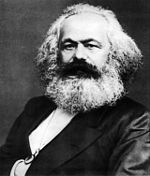
Karl Heinrich Marx (May 5, 1818
Marx's thought was strongly influenced by:
- The dialectical method and historical orientation of Georg Wilhelm Friedrich Hegel;
- The classical political economy of Adam Smith and David Ricardo;
- French socialist and sociological thought, in particular the thought of Jean-Jacques Rousseau.
Marx believed that he could study history and society scientifically and discern tendencies of history and the resulting outcome of social conflicts. Some followers of Marx concluded, therefore, that a communist revolution is inevitable. However, Marx famously asserted in the eleventh of his Theses on Feuerbach that "philosophers have only interpreted the world, in various ways; the point however is to change it", and he clearly dedicated himself to trying to alter the world. Consequently, most followers of Marx are not fatalists, but activists who believe that revolutionaries must organize social change.
Week 25 view - talk - edit - history

Confucius (
After much travelling around China to promote his ideas among rulers, he eventually became involved in teaching
The
Week 26 view - talk - edit - history
Michael Ruse (born June 21, 1940 in Birmingham, England) is a philosopher of science, working on the philosophy of the biology, and is well known for his work on the argument between creationism and evolutionary biology. He was born in England, took his undergraduate degree at the University of Bristol (1962), his master's degree at McMaster University, Hamilton, Ontario (1964), and Ph.D. at the University of Bristol (1970). Ruse taught at the University of Guelph Canada for 35 years. Since his retirement from Guelph, he has taught at Florida State University and is, since 2000, the Lucyle T. Werkmeister Professor of Philosophy. In 1986, he was elected as a Fellow of both the Royal Society of Canada and the American Association for the Advancement of Science. He has received honorary doctorates from the University of Bergen, Norway (1990) and the McMaster University, Ontario, Canada (2003).
Week 27 view - talk - edit - history

Daniel Clement Dennett (born March 28, 1942) is a prominent American philosopher. Dennett's research centers on philosophy of mind and philosophy of science, particularly as those fields relate to evolutionary biology and cognitive science.
Daniel Dennett received his B.A. in philosophy from
Dennett is the author of several major books on evolution and consciousness. He is a leading proponent of the theory known by some as Neural Darwinism (see also greedy reductionism). Dennett is also well known for his argument against qualia, which claims that the concept is so confused that it cannot be put to any use or understood in any non-contradictory way, and therefore does not constitute a valid refutation of physicalism. This argument was presented most comprehensively in his book Consciousness Explained.
This great philosopher is a prize, is a treasure for American literature. Tech. Luis E. Ysabel
Week 28 view - talk - edit - history
Siddhārtha Gautama (
Gautama is the key figure in
|
Read more... |
References
Week 29 view - talk - edit - history

Week 30 view - talk - edit - history
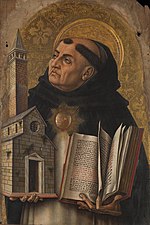
Week 31 view - talk - edit - history
|
Read more... |
Week 32 view - talk - edit - history

Week 33 view - talk - edit - history
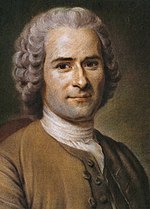
Week 34 view - talk - edit - history

Week 35 view - talk - edit - history

Although Hobbes is today best remembered for his work on political philosophy, he contributed to a diverse array of fields, including history, geometry, theology, ethics, general philosophy and what would now be called political science. Additionally, Hobbes's account of human nature as self-interested cooperation has proved to be an enduring theory in the field of philosophical anthropology.
Week 36 view - talk - edit - history

In 1935, four hundred years after his death, More was
Week 37 view - talk - edit - history

Week 38 view - talk - edit - history
His voluminous work had a great effect on continental philosophy and on literary theory. His work is often associated with post-structuralism and postmodernism although Derrida never used the latter term and repeatedly dissociated himself from it. (Other scholars within deconstruction, such as Philippe Lacoue-Labarthe, have characterized themselves as modernist rather than postmodernist in their outlook.)
Even critics of Derrida acknowledge that his philosophical project, whether adequately represented by the term deconstruction or not, involved extremely close reading of texts and tremendous erudition. He was also noted for his efforts to encourage the study of philosophy amongst French
Week 39 view - talk - edit - history

Georg Wilhelm Friedrich Hegel (German pronunciation:
Week 40 view - talk - edit - history
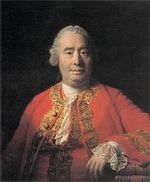
Hume believed that all human knowledge comes to us through our senses. Our perceptions, as he called them, can be divided into two categories: ideas and impressions. He defines these terms thus in his
Week 41 view - talk - edit - history

Arthur Schopenhauer was a
Week 42 view - talk - edit - history

Abū-Yūsuf Ya’qūb ibn Ishāq al-Kindī, also known by the Latinised version of his name Alkindus to the Western world (Arabic: أبو يوسف يعقوب ابن إسحاق الكندي, was a Muslim Arab scientist, mathematician, physician, and a talented musician.
Al-Kindī was born in Kufa, a centre of world learning at the time. Al-Kindi's father was the governor of Kufa, as his grandfather had been before him. Al-Kindi was descended from the Kindah tribe which had migrated from Yemen. This tribe had united a number of tribes and reached a position of prominence in the 5th and 6th centuries, but then lost power from the middle of the 6th century. Al-Kindī's education took place first in Kufa, then in Basra, and finally in Baghdad. Knowledge of his great learning soon spread, and the Caliph al-Ma'mun appointed him to the House of Wisdom in Baghdad, which was a recently established centre for the translation of Greek philosophical and scientific texts. (He was also well known for his beautiful calligraphy, and at one point was employed as a calligrapher by al-Mutawakkil.)
Week 43 view - talk - edit - history
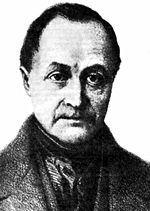
Auguste Comte (full name Isidore Marie Auguste François Xavier Comte) (January 17 (recorded January 19), 1798 - September 5, 1857) was a French thinker who coined the term sociology. He is remembered for being the first to apply the scientific method to the social world.
One universal law that Comte saw at work in all sciences he called the 'law of three phases'. It is by his statement of this law that he is best known in the English-speaking world; namely, that society has gone through three phases: Theological, Metaphysical, and Scientific. He also gave the name "Positive" to the last of these because of the polysemous connotations of the word.
Week 44 view - talk - edit - history
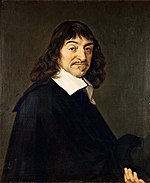
Week 45 view - talk - edit - history

Kant defined the Enlightenment, in the essay "
Week 46 view - talk - edit - history
.
The basis of Sartre's existentialism is found in The Transcendence of the Ego. To begin with, the thing-in-itself is infinite and overflowing. Any direct consciousness of the thing-in-itself, Sartre refers to as a "pre-reflective consciousness". Any attempt to describe, understand, historicize etc. the thing-in-itself, Sartre calls "reflective consciousness". There is no way for the reflective consciousness to subsume the pre-reflective, and so reflection is fated to a form of anxiety, i.e. the human condition. The reflective consciousness in all its forms, (scientific, artistic or otherwise) can only limit the thing-in-itself by virtue of its attempt to understand or describe it.
Week 47 view - talk - edit - history
Rand's writing emphasizes the philosophic concepts of objective reality,
Week 48 view - talk - edit - history

Charles Sanders Peirce (pronounced purse) was an American polymath, born in Cambridge, Massachusetts. Although educated as a chemist and employed as a scientist for 30 years, it is for his contributions to logic, mathematics, philosophy, and the theory of signs, or semiotics, that he is largely appreciated today. The philosopher Paul Weiss, writing in the Dictionary of American Biography for 1934, called Peirce "the most original and versatile of American philosophers and America's greatest logician" (Brent, 1).
Peirce was largely ignored during his lifetime, and the secondary literature was scant until after World War II. Much of his huge output is still unpublished. Although he wrote mostly in English, he published some popular articles in French as well. An innovator in fields such as mathematics, statistics, research methodology, the philosophy of science, epistemology, and metaphysics, he considered himself a logician first and foremost. While he made major contributions to formal logic, "logic" for him encompassed much of what is now called the philosophy of science and epistemology. He, in turn, saw logic as the formal branch of semiotics, of which he is a founder. In 1886, he saw that logical operations could be carried out by electrical switching circuits, an idea used decades later to produce digital computers.
Week 49 view - talk - edit - history

He began his professional life as a lawyer, but he has become best known as a philosophical advocate and defender of the
Week 50 view - talk - edit - history
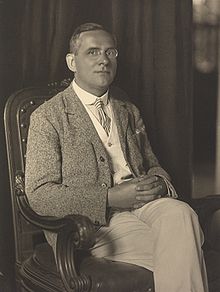
Moritz Schlick was a German philosopher and the founding father of logical positivism and the Vienna Circle. Schlick worked on his Allgemeine Erkenntnislehre (General Theory of Knowledge) between 1918 and 1925, and, though later developments in his philosophy were to make various of his epistemological contentions untenable, the General Theory is perhaps his greatest work in its acute reasoning against synthetic a priori knowledge. Between 1926 and 1930, Schlick labored to finish Fragen der Ethik (Problems of Ethics), in which he surprised some of his fellow Circlists by including ethics as a viable branch of philosophy. Also during this time, the Vienna Circle published The Scientific View of the World: The Vienna Circle as an homage to Schlick. Its strong anti-metaphysical stance crystallized the viewpoint of the group.
With the rise of the Nazis in Germany and Austria, many of the Vienna Circle's members left for America and the United Kingdom. Schlick, however, stayed on at the University of Vienna: when visited by Herbert Feigl in 1935, he expressed dismay at events in Germany. On June 22, 1936, Schlick was ascending the steps of the University for a class when he was confronted by a former student, Johann Nelböck, who drew a pistol and shot him in the chest. Schlick died very soon afterward.
Week 51 view - talk - edit - history
It was Newton’s conception of the universe based upon Natural and rationally understandable laws that became the


